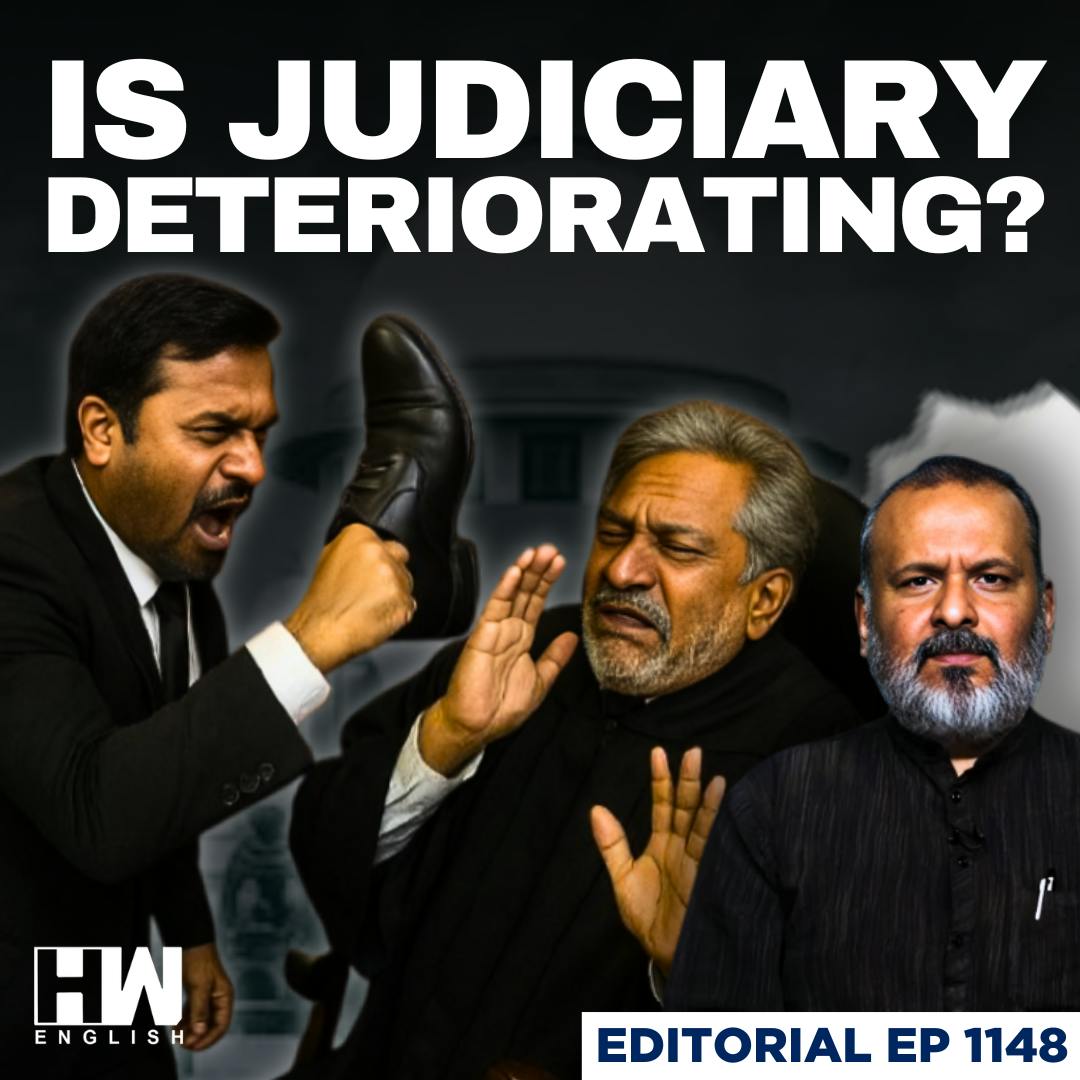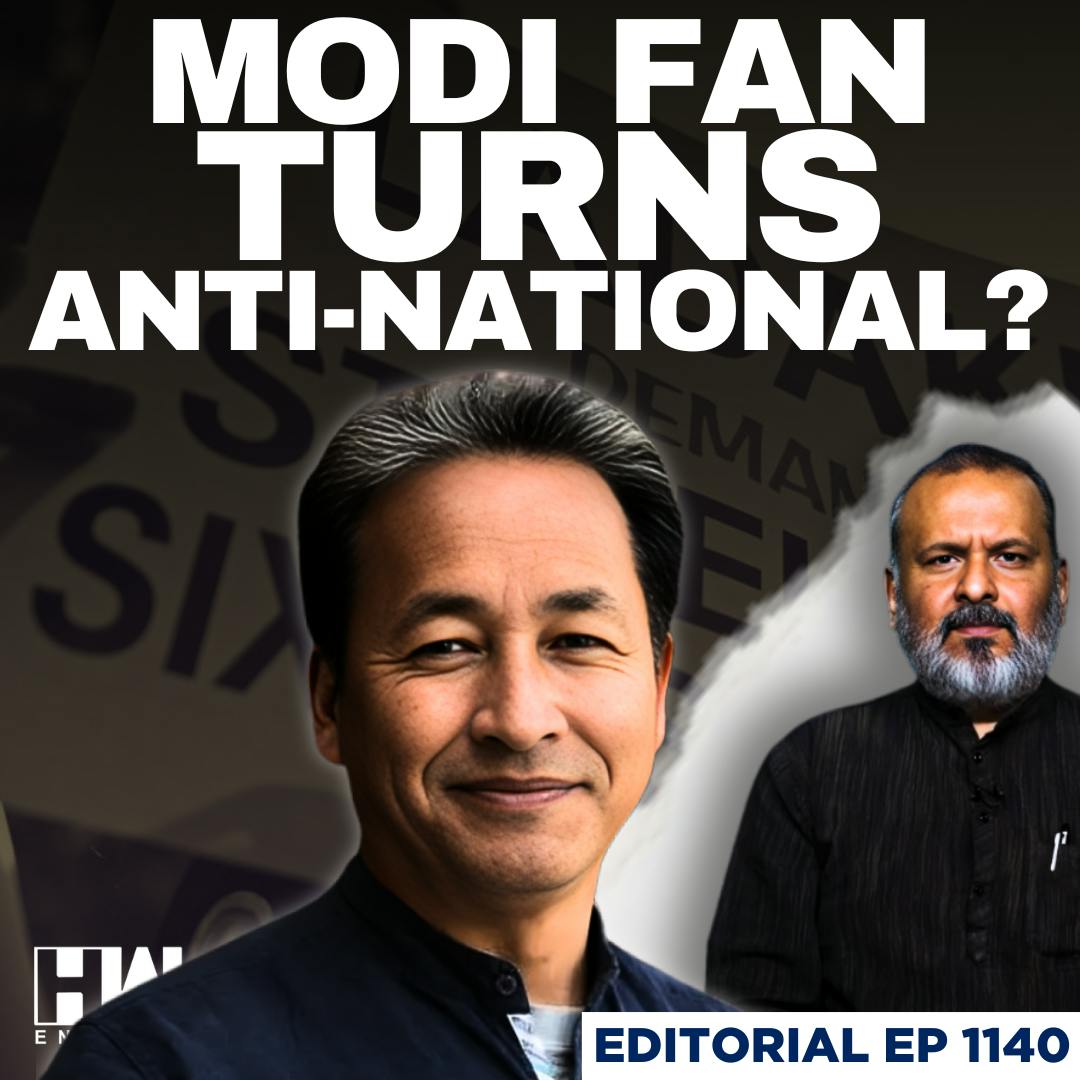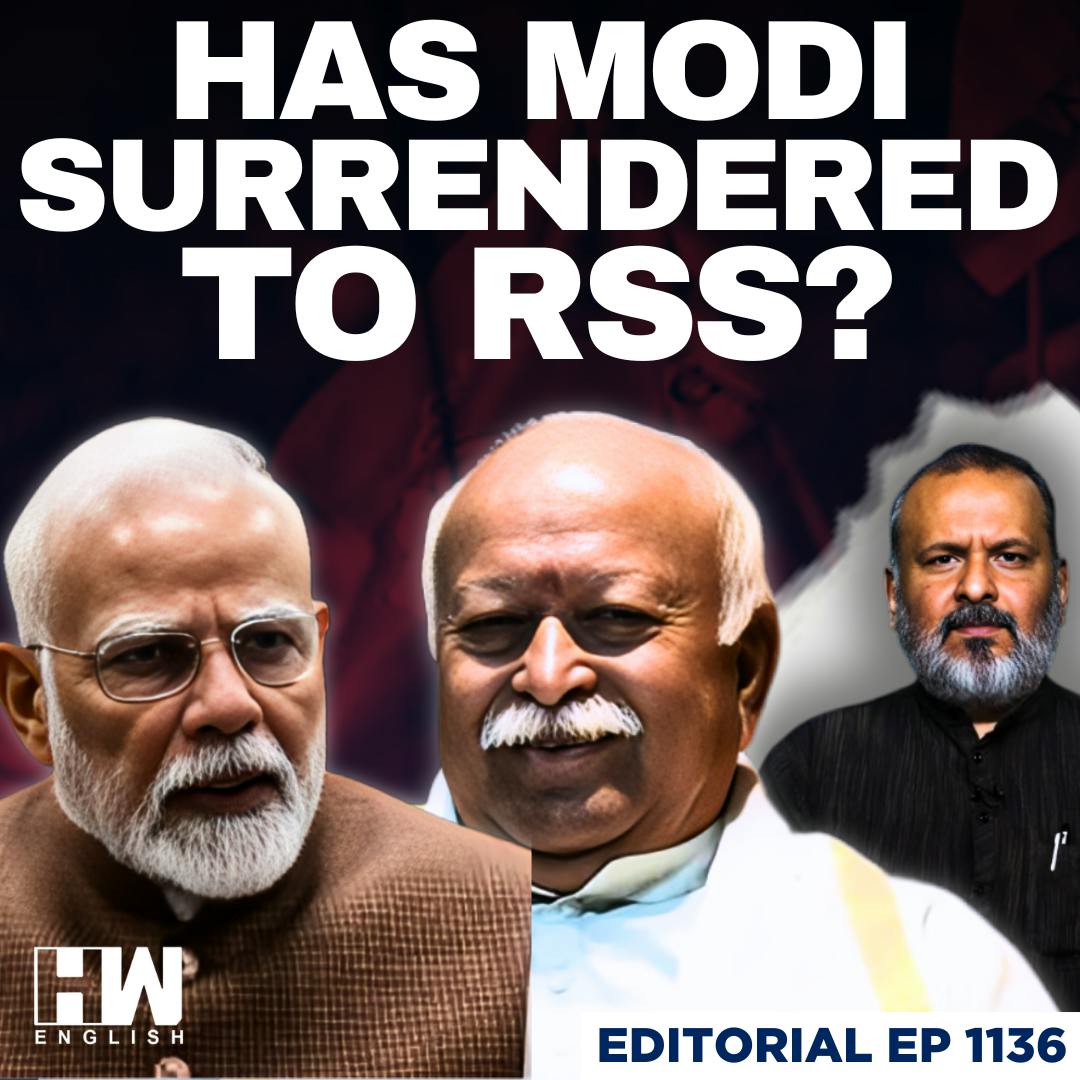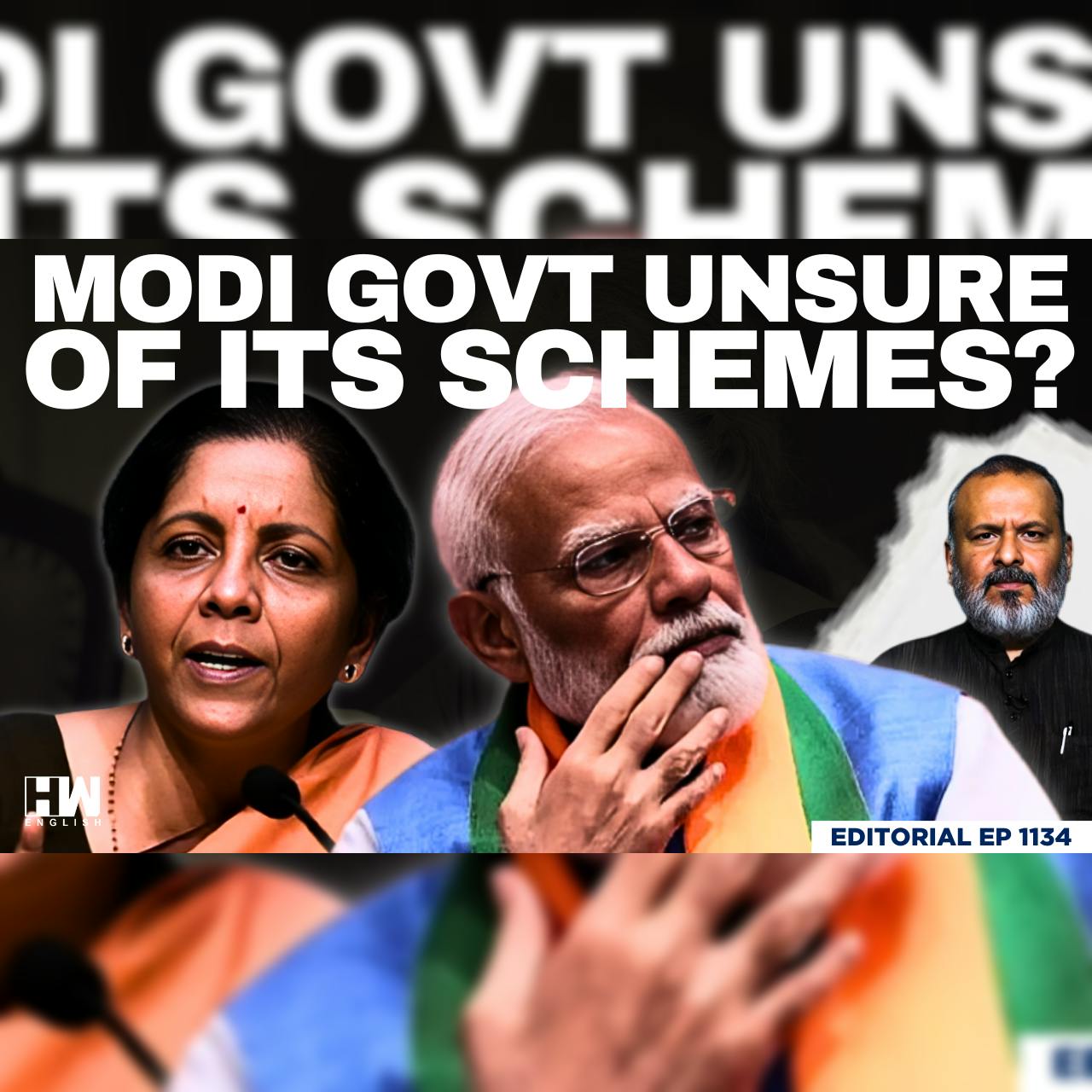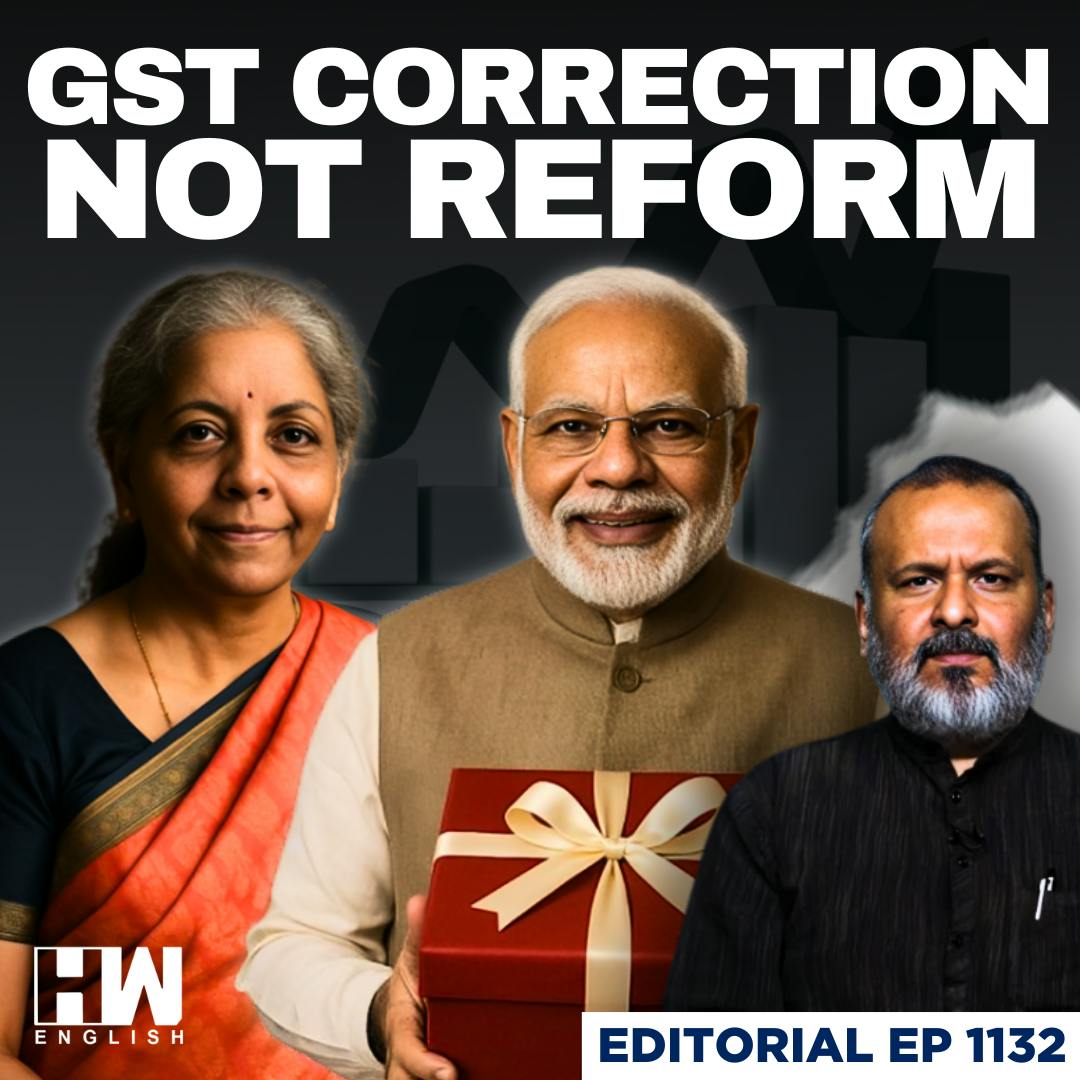Discover HW News Editorial with Sujit Nair
HW News Editorial with Sujit Nair

HW News Editorial with Sujit Nair
Author: HW News Network
Subscribed: 6Played: 35Subscribe
Share
Description
HW News Editorial With Sujit Nair: From Politics to International Affairs, to Social Issues, Editorial led by our Managing Editor Mr Sujit Nair deep dives into various topics and discusses various perspectives. Sujit Nair also presents his stance on the matter. Listen to Editorial with Sujit Nair daily.
440 Episodes
Reverse
In this episode of 'Editorial', HW News' Managing Editor Mr. Sujit Nair discusses a courtroom incident that took place in the Jharkhand High Court on Thursday where a lawyer lost his cool in front of the judge and said, "I can argue in my own way, not in your way in which you say. Please mind that... Don't try to humiliate any advocate, I am telling you. Sir, please don't try to humiliate any person. The country is burning... with the judiciary. These are my words. Don't try to humiliate any advocate. Aap bahut jaante hai, aap judge hogaye; hum loug nai jaante hum loug wakeel hai (you know a lot, you have become a judge; We don't know, we are lawyers). I will argue in my own way. Don't cross the limit. Please, don't cross the limit. I have already practiced for the last 40 years." Mr. Nair highlights the deterioration of India's legal justice system where judges are alleged of misconduct which in turn has led to a fall in the imagery of the judiciary.
Learn more about your ad choices. Visit megaphone.fm/adchoices
In this episode of 'Editorial', HW News' Managing Editor Mr. Sujit Nair discusses the statements given by US President Donald Trump regarding India's oil purchases from Russia. Trump said, “I was not happy that India was buying oil, and (PM Modi) assured me today that they will not be buying oil from Russia. That’s a big step. Now we’ve got to get China to do the same thing".
Learn more about your ad choices. Visit megaphone.fm/adchoices
In this episode of Dialogue, Sujit Nair speaks to former diplomat KP Fabian on whether India was right in engaging with Taliban - Afghanistan's new regime - the Pakistan angle and much more.
Learn more about your ad choices. Visit megaphone.fm/adchoices
In this episode of Dialogue, Sujit Nair speaks with former judge S Muralidhar and lawyers Suhith Parthasarthy and Gautam Bhatia as the Supreme Court of India completes 75 years.
Justice Muralidhar, editor of the newly published book 'Incomplete Justice: The Supreme Court at 75', offers a critical analysis of the Court’s journey and explains why he believes its track record has been uneven. Suhith Parthasarthy elaborates on the flaws in the anti-defection law and the Supreme Court’s verdict in the Shiv Sena split case. Gautam Bhatia opines on press freedom and free speech in India.
Learn more about your ad choices. Visit megaphone.fm/adchoices
In this episode of Editorial, HW News' Managing Editor Mr. Sujit Nair discusses India’s agricultural sector and the various hardships farmers face, which in some cases drive them to take their own lives. Mr. Nair highlights how Indian farmers suffer due to lack of control over input costs, such as fertilizers and seeds, as well as output prices, which are determined by the APMC mandis.
Learn more about your ad choices. Visit megaphone.fm/adchoices
In this episode of 'Editorial', HW News' Managing Editor Mr. Sujit Nair discusses the remarks made by Minister of Home Affairs Amit Shah on the growth of Muslim population in India. Highlighting the faster growth rate of Muslims in India, Shah on 'X' said, "from 2001-2011, the growth rate in the Hindu population was 16.8%, while the Muslim population grew at a rate of 24.6%". Mr. Nair opines that these statements made by HM Shah are nothing but a diversionary tactic from the caste conflicts that is taking place in the country after CJI B.R. Gavai was attacked by advocate Rakesh Kishore by a shoe and the civil unrest that is taking place in Ladakh after the arrest of climate activist Sonam Wangchuk under the stringent NSA.
Learn more about your ad choices. Visit megaphone.fm/adchoices
In this episode of Editorial, HW News’ Managing Editor Mr. Sujit Nair speaks about how Ashish Mishra Teni, the accused in the Lakhimpur Kheri violence, has been allowed by the apex court to visit his hometown, Lakhimpur Kheri, for Diwali celebrations. Mr. Nair argues that the law often appears biased prima facie, as accused individuals perceived to be close to the ruling dispensation are treated with leniency, while critics of the government face an iron hand.
Learn more about your ad choices. Visit megaphone.fm/adchoices
In this episode of 'Editorial', HW News' Managing Editor Mr. Sujit Nair discusses the incident where a shoe was hurled at the Chief Justice of India B.R. Gavai in the Supreme Court of India by advocate Rakesh Kishore. Mr. Nair talks how this incident reflects the rising intolerance in our society and how it can harm the democratic future of India.
Learn more about your ad choices. Visit megaphone.fm/adchoices
In this episode of 'Editorial', HW News' Managing Editor Mr. Sujit Nair discusses the arrest of climate activist Sonam Wangchuk under the stringent NSA and analyses whether this move could backfire on the Modi government. Mr. Nair introduces a concept he calls the 'BJP’s star minting machine', similar to the 'BJP’s washing machine', where he argues that through CBI and ED investigations and arrests, the BJP inadvertently turns ordinary activists into prominent leaders.
Learn more about your ad choices. Visit megaphone.fm/adchoices
In this episode of Editorial, HW News' Managing Editor Mr. Sujit Nair discusses the scathing remarks made by Madhya Pradesh High Court bench regarding the disclosure of assets of BJP MLA and cabinet minister Govind Singh Rajput, where a writ petition was filed by a petitioner Rajkumar Singh alleging that Rajput had concealed six properties while filing his nomination form 26, thereby violating Section 125A of the Representation of the People Act. The state counsel argued, "In March they made a complaint...In July we sent a report...Its only been five months. In Representation of Peoples Act, there is a provision that election petitions should be decided in six months. They are decided in five years,". To this, the bench of Chief Justice Sanjeev Sachdeva and Justice Vinay Saraf orally remarked; "Don't take such a stand that because election petitions take 5 years. We know why they take five years...because there is a ruling party. If its a losing party, if its not a party in power, it will be decided in five months".
Learn more about your ad choices. Visit megaphone.fm/adchoices
In this episode of 'Editorial', HW News' Managing Editor Sujit Nair discusses the arrest of climate activist Sonam Wangchuk under the NSA, the recent violence in Ladakh, and the region’s longstanding demand for statehood.
Learn more about your ad choices. Visit megaphone.fm/adchoices
In this episode of 'Editorial', HW News' Managing Editor Mr. Sujit Nair discusses why are protests taking place in the Union Territory of Ladakh and the alleged role of climate activist Sonam Wangchuk in this entire saga.
Learn more about your ad choices. Visit megaphone.fm/adchoices
In this episode of 'Editorial', HW News' Managing Editor Mr. Sujit Nair discusses the doling out of ₹10,000/- to the women of Bihar ahead of the state assembly polls. Mr. Nair highlights how freebies which may help politicians win elections, harm the fiscal health of the state and the country at large.
Learn more about your ad choices. Visit megaphone.fm/adchoices
In this episode of 'Editorial', HW News' Managing Editor Mr. Sujit Nair, on the occasion of PM Modi turning 75, discusses five big mistakes committed during his 11 years as Prime Minister.
Learn more about your ad choices. Visit megaphone.fm/adchoices
In this episode of 'Editorial', HW News' Managing Editor Mr. Sujit Nair discusses how Prime Minister Narendra Modi, in his third term, has not been seen in as commanding a position as he was during his previous two terms, possibly due to the skewed mandate received in the 2024 Lok Sabha elections. Following this observation, Mr. Nair opines that PM Modi appears to mend ties with RSS chief Dr. Mohan Bhagwat, whom he didn't entertain in his previous two terms.
Learn more about your ad choices. Visit megaphone.fm/adchoices
In this episode of 'Editorial', HW News' Managing Editor Mr. Sujit Nair discusses the eccentric behavior of US President Donald Trump and his unusual outreach towards India. Trump initially criticized India harshly, calling it a "dead economy," but after the SCO Summit, he announced "continuing negotiations to address the trade barriers between India and the US" and also referred to PM Modi as his "great friend."
Learn more about your ad choices. Visit megaphone.fm/adchoices
In this episode of 'Editorial', HW News' Managing Editor Mr. Sujit Nair speaks on the Finance Minister Nirmala Sitharaman's decision to review and tweak the flagship schemes launched by the Modi government since the past 11 years. Mr. Nair opines how the NDA 3.0 government with a thin majority in the Lok Sabha was compelled to review the schemes launched by them, which was unlikely during the previous 2 terms of the Modi government.
Learn more about your ad choices. Visit megaphone.fm/adchoices
In this episode of 'Editorial' HW News' Managing Editor Mr. Sujit Nair discusses the viral video where Maharashtra Deputy CM Ajit Pawar is heard threatening a woman IPS officer Anjana Krishna who was cracking down on illegal excavation of 'murrum' - a substance used in road construction in Maharashtra's Solapur.
Learn more about your ad choices. Visit megaphone.fm/adchoices
In this episode of Dialogue, Managing Editor Sujit Nair speaks to D Sivanandhan (former Mumbai Police Commissioner and Maharashtra DGP) on his new book 'The Brahmastra Unleashed'. Sivanandhan - a decorated IPS officer - reveals a first-hand account of how Mumbai's dreaded underworld was wiped out from the city.
Learn more about your ad choices. Visit megaphone.fm/adchoices
In this episode of Editorial, HW News' Managing Editor Mr. Sujit Nair discusses the GST 2.0 announced by Finance Minister Nirmala Sitharaman. Mr. Nair opines how the latest changes in the Goods and Services Taxes are not reforms but corrections.
Learn more about your ad choices. Visit megaphone.fm/adchoices


